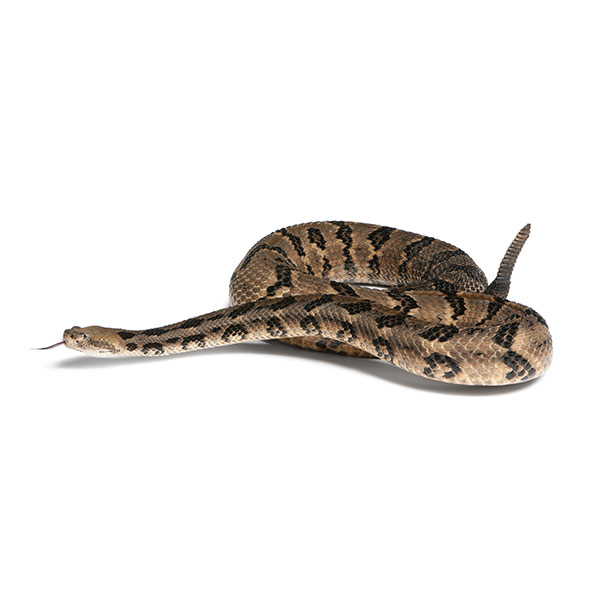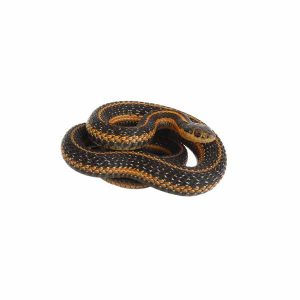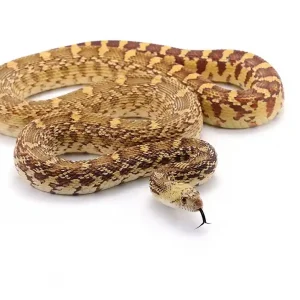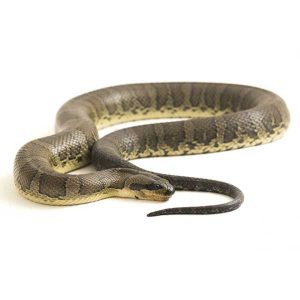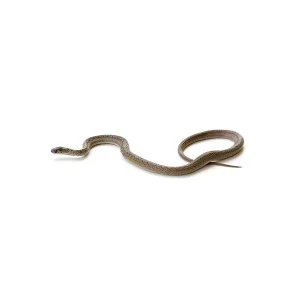Canebrake Rattlesnakes in Georgia
Also known as timber rattlesnakes, canebrake rattlesnakes are typically a gray color but may have a pink hue to their skin. They possess the signature rattlers at their tail, which range in color from brown to black or even yellow. They are, on average, four feet long but some have been recorded to grow to 6 feet long. These snakes are most active during the spring and summer and are active both night and day. When temperatures begin to drop in the fall, these snakes will prepare to hibernate during the winter.
Canebrake Rattlesnake Habitat
Canebrake rattlesnakes are found in a wide variety of environments, from swamp or river floodplains to pine forests, rural habitats, and more. Canebrake rattlesnakes prefer to live in forests, preferably with sunny, rocky knolls available. They will often hibernate in dens with copperheads or black rat snakes. They feed on small mammals, such as rabbits, rats, mice, birds, and squirrels.
Canebrake Rattlesnake Behaviors, Threats, or Dangers
Although this snake is typically calm, they are extremely dangerous if threatened. Canebrakes are active during both day and night but spend the majority of their time coiled in ambush positions ready to capture prey. As with all rattlesnakes, they will shake their rattle as a warning sign before striking. If bitten by a canebrake rattlesnake, the most important thing to do is get away from the snake, as they can strike again if they feel threatened. Try to identify the snake if you can and seek medical attention immediately. If you are having an issue with canebrake rattlesnakes on your property, it is best to consult a professional snake control company for removal.

